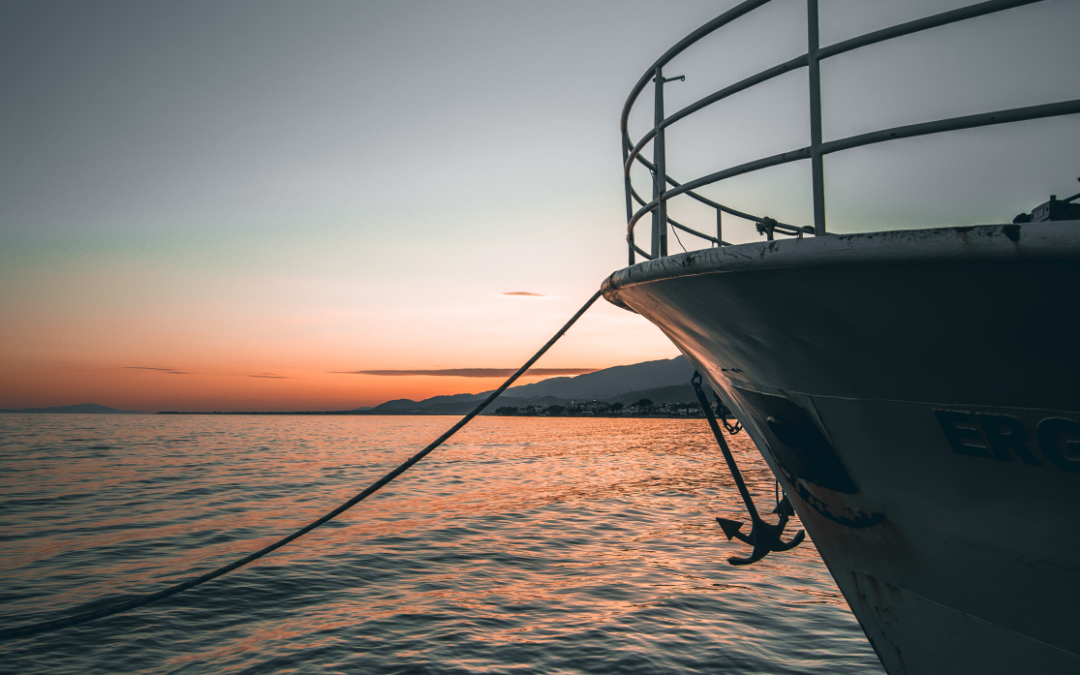As the days get warmer and the summer boating season approaches, it’s time to prepare your boat for the water. The Chesapeake Bay is one of the most beautiful and popular places to boat in the U.S., and whether you’re planning on fishing, cruising, or simply enjoying the stunning views, it’s important to make sure your vessel is in top shape. The last thing you want is to experience problems on the water due to the of lack of maintenance or preparation.
If you’re docking at Whitehouse Cove Marina in Poquoson, VA (or any other marina), ensuring your boat is ready for the season can help you make the most of your time on the Chesapeake Bay. In this blog post, we’ll cover everything you need to know about getting your boat ready for summer, from routine maintenance to safety checks. Follow these tips, and you’ll be prepared for a fun and worry-free boating season on the Chesapeake Bay.
1. Start with a Thorough Cleaning
Before you even think about setting sail on the Chesapeake Bay, it’s important to give your boat a good, thorough cleaning. Dust, dirt, and grime can accumulate over the winter months, and a dirty boat not only looks bad but can also lead to problems down the road, especially when it comes to the hull and interior.
Start with the exterior. Use a pressure washer or boat wash to clean the hull and remove any buildup of dirt, algae, or saltwater. Make sure to clean the propeller and trim tabs as well, as these parts are exposed to the elements and can accumulate debris. For fiberglass boats, consider applying a special gel coat polish to protect the surface from scratches and UV damage.
Next, focus on the boat’s interior. Clean and sanitize all the surfaces, including the deck, seating, and the galley if you have one. Remove any mildew or mold buildup, as it can damage materials and create an unpleasant smell. Wipe down all surfaces with a microfiber cloth and a mild cleaning solution to remove dirt and grime. Remember, a clean boat is a well-maintained boat.
Tip: When cleaning the deck and the interior, use products that are specifically designed for marine use to avoid damaging surfaces. Marine cleaners are gentle yet effective, ensuring your boat remains in good condition.
2. Check the Engine and Fuel System
The engine is the heart of your boat, so it’s essential to give it a thorough inspection before hitting the water. Even if you’ve used your boat recently, it’s always a good idea to check the engine before the boating season begins. Start by checking the engine oil. Make sure the oil is clean and at the proper level. If it’s dirty or low, it’s time for an oil change.
Next, check the fuel system for any signs of leaks or corrosion. Inspect fuel lines, connections, and the fuel tank. If your boat’s fuel filter is due for a change, go ahead and replace it before you set off. Look for any signs of damage to the fuel lines or any cracks in the hoses that may have developed over the winter. Ensuring the fuel system is in good condition will help prevent engine failure on the water.
Tip: If you didn’t use the boat over the winter, consider draining the old fuel and replacing it with fresh gasoline. Older fuel can lead to engine performance issue.
3. Inspect the Battery and Electrical System
The electrical system is vital for running everything from lights to the GPS, so it’s important to check it thoroughly before the summer season. Start by inspecting the battery. Check for any corrosion on the terminals, and ensure the battery is securely connected. If the battery is old or not holding a charge, it may be time for a replacement. Also, check the wiring and connections for any signs of wear or damage. Boat wiring is often exposed to moisture, which can cause corrosion or shorts, which can sometimes result in a boat fire. Ensure that your battery is fully charged and that all electrical connections are clean and secure.
Additionally, don’t forget to inspect your zinc anodes, which are designed to protect your boat from galvanic corrosion. Zinc anodes are typically placed on the hull, propeller shafts, rudders, trim tabs, outboard engines, stern drives, and in the cooling system of most inboard engines. These anodes attract electricity in the water, preventing damage to vital metal parts of your boat. Regularly check the condition of your zinc anodes, as they can wear down over time and may need to be replaced to maintain effective protection against corrosion. This small step can save you from expensive repairs and keep your boat in top condition for the boating season.
Tip: If your boat has a battery switch, make sure it is functioning correctly. A faulty battery switch can lead to power failure while you’re out on the water.
4. Inspect the Propeller and Steering System
Your boat’s propeller is crucial for its performance, so you need to inspect it before launching. Look for any cracks, dents, or signs of wear. Even small nicks in the propeller can affect performance and cause damage to the engine. If the propeller looks damaged, it’s a good idea to replace it before heading out.
Next, check the steering system. Ensure that the steering wheel and cables are functioning smoothly and that the boat responds well when turning. If you notice any stiffness or resistance, it could indicate an issue that needs to be addressed before you hit the water.
Tip: When inspecting the propeller, always check for debris or fishing line tangled around it. In the waters of the Chesapeake Bay, natural growth can quickly build up, making it even more important to clean your propeller after each trip. Excessive growth or debris can lower performance, damage the propeller, and lead to costly repairs if not dealt with regularly. Keeping your propeller clean ensures that your boat runs smoothly and avoids unnecessary issues.
5. Test the Bilge Pump
Your bilge pump is crucial for removing excess water from the boat’s hull. Make sure the pump is in good working order before launching. Test it by activating the pump and checking that it removes water efficiently. If the pump doesn’t work, it could lead to dangerous situations if water starts accumulating in the bilge.
Inspect the bilge area for any debris or clogs that could prevent the pump from functioning properly. Clear away any obstructions and ensure the hose is securely connected. If your boat is equipped with an automatic bilge pump, test it to confirm it activates when needed.
Tip: Check the bilge regularly throughout the season, especially after heavy rainfall or if your boat has been in the water for extended periods. Keeping the bilge clean and functional is vital to maintaining your boat’s safety
6. Check the Safety Equipment
Before heading out on the water, make sure that all your safety equipment is up to date and easily accessible. This includes life jackets, fire extinguishers, flares, and distress signals. Life jackets should be the proper size for each passenger, and they should be in good condition. If your life jackets have been stored away for a while, check for signs of wear and replace any damaged ones.
Fire extinguishers should be fully charged and located in easy-to-reach spots, especially near the galley or engine compartment where fires are more likely to start. Flares and distress signals should also be in good working condition. Check the expiration dates on any emergency supplies and replace them as needed.
Tip: If you don’t already have a first aid kit on board, now’s the time to add one. A well-stocked first aid kit can come in handy for minor injuries and emergencies on the water.
7. Check the Dock Lines and Anchoring Gear
Having reliable dock lines and anchoring gear is essential for safety while docked or when anchoring out on the water. Inspect your dock lines for fraying, wear, or damage. Replace any old or weak lines to ensure your boat stays secure while docked at marinas like Whitehouse Cove Marina.
Inspect the anchor and anchoring equipment as well. Check that the anchor is the appropriate size for your boat, and ensure that the chain and rode are in good condition. Test the anchor’s functionality to ensure it sets properly and holds the boat in place.
Tip: Always have extra dock lines and a backup anchor on board in case of an emergency or unforeseen situation.
8. Perform a Full Safety Check
Before you head out, do a final safety check to make sure everything is in place and working correctly. Double-check that all essential equipment is on board and up to date, including life jackets, a first aid kit, fire extinguishers, and distress signals. Make sure the boat’s lights, horn, and other signaling devices are functioning, as these are essential for safe navigation, especially in poor visibility or at night.
Tip: Create a pre-departure checklist to go over every time you go boating. This will help you stay organized and ensure you haven’t missed anything important.
9. Plan Your Route and Prepare a Float Plan
It’s essential to plan your route and make sure someone knows where you’ll be. Create a float plan that includes details about your departure time, destination, and expected return time. Share this plan with a friend or family member to ensure someone knows your whereabouts in case of an emergency.
Tip: Keep a copy of your float plan on board in case you lose contact with the person who has it.
10. Book Your Boat Slip Early
The final tip is to book your boat slip in advance. As the boating season ramps up, our marina can get busy, especially during the summer season. Booking your boat slip early ensures you have a place to dock your boat when you arrive. Whether you’re staying for a day, weekend, or longer, securing your slip ahead of time reduces stress and guarantees you a spot (if available).
At Whitehouse Cove Marina in Poquoson, VA, we offer boat slip rentals for short-term and long-term stays. Our marina provides easy access to the Chesapeake Bay and is conveniently located for boaters from nearby areas like Norfolk, VA and Virginia Beach, VA.
Tip: Contact Whitehouse Cove Marina in advance to reserve your slip for the season.
That’s a Wrap on Getting Your Boat Summer-Ready!
Preparing your boat for the summer boating season is essential for ensuring a safe and enjoyable experience on the Chesapeake Bay. By following these tips, you’ll be ready to hit the water with confidence, knowing that your boat is in excellent condition and that you have the right safety measures in place.
If you’re looking for a marina to dock your boat this season, Whitehouse Cove Marina in Poquoson, VA, offers boat slip rentals that provide easy access to the Chesapeake Bay, making it the perfect place for your next boating adventure.
Contact us today to reserve your spring and summer boat slip. Let’s make your boating season safe, fun, and memorable!

